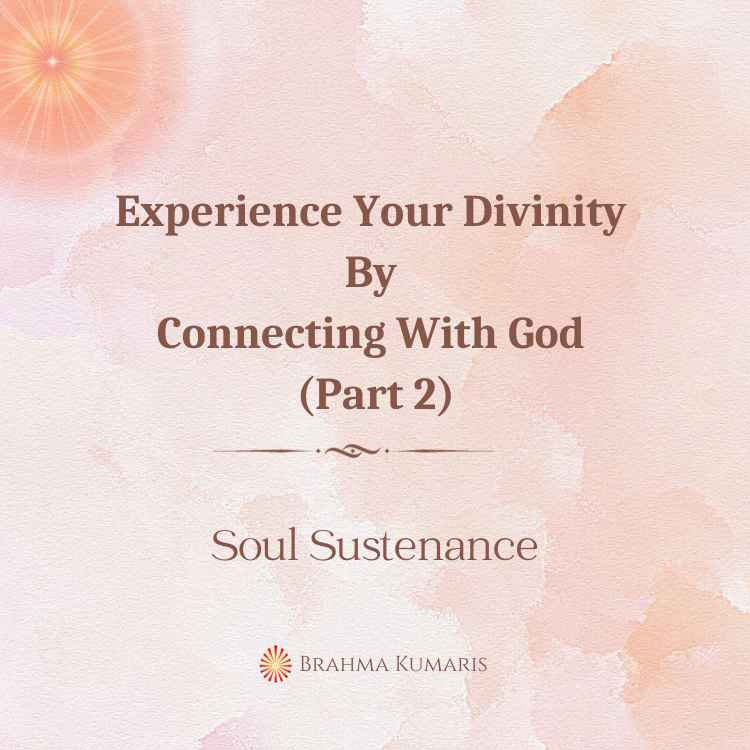
Experience Your Divinity By Connecting With God (Part 2)
Spiritual Message for Navratri Diya The diya reminds us that the body is made from physical elements and I the soul is spiritual light. Lighting
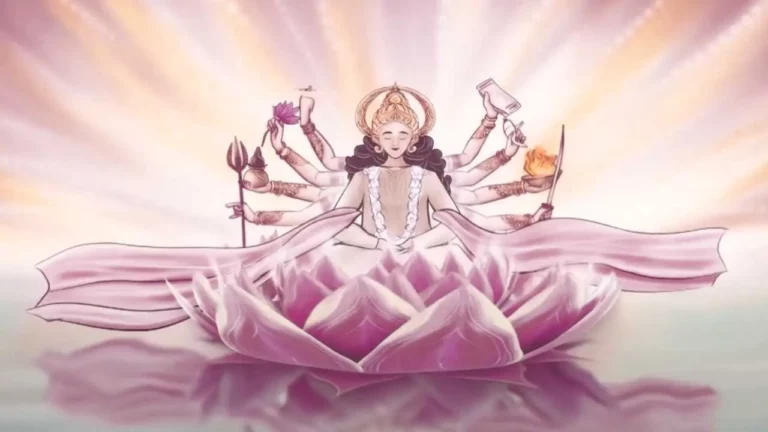
The divine vision, the royal clothes, the weapons, the unique chariot (vaahan), the blessing hand and the other one that gives indiscriminately, the face of dignity, love and law – we call her Ma Shakti. In a country where we consider deities (devi-devtas) our ancestors, the time of Navratri and Dusshera is a journey of reverence, penance, attaining of blessings, leading to the victory of divinity over evil.
Each of the nine days, we invoke the spirit of a Goddess; we sing praises of her life; we aspire to imbibe her qualities in order to defeat the evil – the physical manifestation of vices within. In fact, we individually fight this battle every day. Has the festival become just a ritual or another social event or will we finally eliminate this overwhelming enemy? The powerful characteristics of the female entity have been known for ages – it would be wise for all of us to learn from our Devis.
In most families, preparations for the festival involve creating the sacred space for the idol, laying seeds of wheat on banana leaves, above which a pot is placed from where droplets of water constantly fall. Garlands of flowers are placed in this pot. A diya or light is constantly lit. Prayers and fasting take place for the nine-day period and culminates with a havan. The tenth day is spent in creating and burning the effigy of Ravana. Looking at the spiritual meaning, these rituals speak volumes on how one’s life becomes divine.
This consciousness makes us concentrate on the Almighty Power, from whom we absorb Divine Powers, symbolised by the weapons in the hands of the Deities. The spiritual power gained during intense prayers and meditation is incomparable to any power seen in today’s world. The power bestowed gives us the will to eliminate the vices and bad qualities within us; just as objects are placed in fire during a havan, we too surrender our weaknesses.
The Devis’ characteristics are extraordinary – they are shown as young kumaris, yet are called ‘Mother’ (respect gained through purity), they are shown with 4 or 8 arms (possession of divine powers), each arm holds an alankaar (signifying weapons of knowledge wielded at negative vices), a devil is shown at their feet (victory over evil tendencies) and many more.
The 8 hands of Devis are actually symbolic of the inner powers that soul attains when it connects its mind and intellect with the Supreme Soul (God). If we give a thought on this, we will realise that the nature of powers needed in today’s world to overcome the evil (within and around us) are more subtle in nature rather than being physical weapons. Hence, the spiritual significance of the 8 hands of Durga are the 8 divine powers of the soul. Let us understand the spiritual significance of the 9-day ‘Navratri’ festival.
This is a power of the mind to be able to withdraw itself from the negative and the unnecessary. The widespread problem of overthinking, over-reacting and experiencing grief in return is mainly due to the lack of this power. Today our focus largely lies on other people and external events, which is why they have shaped our personality. Therefore, just like a tortoise pulls its head and legs when not required to use them; we too need to withdraw our attention from the outside world to our inner world to keep experiencing and enhancing the peace within. This ability to be able to withdraw our mind in a second is called the Power to Withdraw. It would save our energy from leaking, providing us with more inner strength and stability.
Real co-operation comes from deeper spaces of attitude, feeling and vision. Co-operation is seeing another’s positive traits and offering them powerful thoughts towards success. It is a fabric of unity, song of harmony and road to prosperity. If each individual willingly co-operates with others around, there shall be no challenge or situation that cannot be crossed or won. But the self-centered nature today doesn’t allow people to co-operate with others unless they find a personal benefit behind it. Hence, being able to co-operate with everyone who needs our help (in their righteous deeds) by thoughts, words and actions is a great inner power which enables us to fly over mountains of obstacles.
Today due to lack of knowledge and inner strength, people have lost the power to face. Even in the smallest of failures, they aren’t able to face themselves, their teachers / mentors or family / parents. This leads to a storm of thoughts within which in extreme cases leads to suicides. Hence, power to face means to accept what has happened (to the extent of death of someone beloved) and face it with greater strength so that we don’t just see what happened but also see what can be done next. This inner strength instils courage which is one of the greatest virtues personified in Devis.
To be able to discern the good from bad, the right from wrong requires knowledge. An intellect filled with divine knowledge is the one which possesses the Power of Discrimination. Such a person, in any situation, can clearly see what is right and what is wrong, which path (thoughts, words and actions) is to be taken and which one not. Lack of this power leads to indecisiveness, confusion and often leads the individual to the path of unrighteousness, which appears to be more lucrative than the righteous path. However, one who possesses this power, finds success in whatever he does, because the foundation of such deeds is knowledge and truth.
As a balance shows the correct figure only when the two scales of a balance are stable. Similarly, the intellect gives correct judgement only when there is inner stability. Sometimes, only finding out what is right and what is wrong is not enough. We also need to take the judgement to do what is right. Today, many people even after discerning rightly, knowing what is right and what is wrong, take the path of wrong saying that truth doesn’t work in today’s world. Further, our future depends on the judgments we make today. Hence, making the right judgements, leads to the right response which moves us closer to success and a peaceful future. Hence, this power too is an inner power of the soul.
No two people are alike in this world and no one today is complete. Acknowledging other people in ‘our’ universe is important if we wish to be part of theirs. Accommodating others means accepting people and situations as they are and adjusting or moulding ourselves to have the best outcome, instead of trying to change others. Acceptance doesn’t necessarily mean agreement. Acceptance means considering others ideas and suggestions, giving it a thought and while righteously deciding, with proper reasoning, whether to continue with their idea or not. Acceptance also means, accepting people while knowing that they have certain shortcomings, and then trying to work with their strengths. Acceptance from our end naturally develops acceptance from others end. To be able to mould ourselves, requires inner power and this is what Power to Accommodate is all about.
Tolerance, often considered as a weakness is actually a strength. A tendril tolerates the strong winds by bending itself and so it lives through the storms, while the strong rigid trees are often found uprooted after the storms pass away. Hence, to be able to tolerate, in whatever situation comes in front of us is a demonstration of our flexibility which enables us to pass through the most difficult situations. Secondly, we are all aware of the fact that the world pelter’s stones on a fruit bearing tree, but the tree in return gives sweet fruits, because one can only give to others what one possesses. Hence, no matter what the world gives me, I should be able to give what is good (at the level of thoughts, words and actions). This requires great inner strength which comes in the form of Power to Tolerate.
This is a power which comes from the practice of detachment. Like an Army officer is always detached from the place where he is posted, as he is all the time prepared to move to any other location on one instruction of the commander. Similarly, while living in this world and doing all what is required, we need to detach our mind and intellect from the material things and relations, so that we can perform all our actions in a much impartial manner. The more we are detached, the more our mind and intellect becomes efficient, as the unnecessary chattering and questioning of the mind gets controlled. But to detach ourselves, requires the practice of knowledge and inner power.
Above are the 8 powers which are symbolised as the eight hands of the Devis. Thus, we can understand that anyone who possesses the above mentioned 8 powers cannot be defeated by any situation and shall always be victorious and successful.
Let us move to the 10th day which is celebrated as Dussehra, the festival where the effigy of Ravana is made and then burnt. Like the Devis are shown 8 hands, Ravana is shown having 10 heads. However, as the 8 hands of Devis symbolise the 8 inner powers of the soul, similarly, the 10 heads of Ravana actually symbolise the 5 vices in men and women each i.e. lust, anger, greed, attachment and ego.
Unfortunately, today these 5 vices (Ravana) are ruling the entire world and the victory over the Ravana sitting inside would be the real Dussehra. But the question is how to defeat it. In the Ramayana, we know how Ravana and his ten heads (5 vices each of man and woman) could not be defeated individually – each time Lord Ram killed one head, another sprung up again. Ravana only died when he was shot in the navel.
Taking a spiritual perspective, we cannot overcome our vices by removing them individually; we need to find the source. The parent of all the vices is body-consciousness – which arises from forgetting our true form of a soul and true nature of peace, love, knowledge, happiness, etc.
True knowledge and Rajyoga helps us hit the target.
We often fail to ask how these Shaktis achieved such status – the shastras / scriptures speak of these Goddesses as being Shiv Shaktis – or the powers of God Shiva. They were created by the Supreme Soul in His image. When we learn the method of tapping this Supreme energy, we can truly be children of the Goddesses. Only then will we celebrate Dussehra permanently.
This year let’s celebrate Navratri and Dussehra with the real spiritual significance of these festivals.
Happy Navratri, Happy Dussehra !

Spiritual Message for Navratri Diya The diya reminds us that the body is made from physical elements and I the soul is spiritual light. Lighting
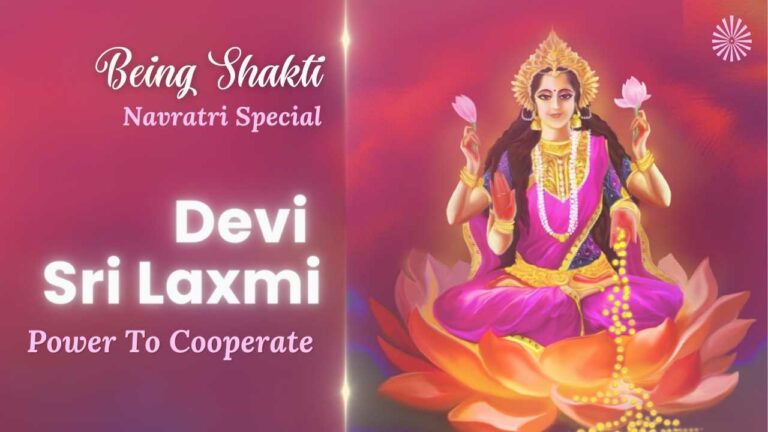
● The power represented by Maa Lakshmi is exemplified by her image sitting on a lotus flower, signifying the ability to remain unaffected by negativity while exuding purity and peace. Her two hands, one adorned with gold mudras and the other bestowing blessings, symbolise how a rich and contented soul can offer support and give to others selflessly, without any expectations in return.
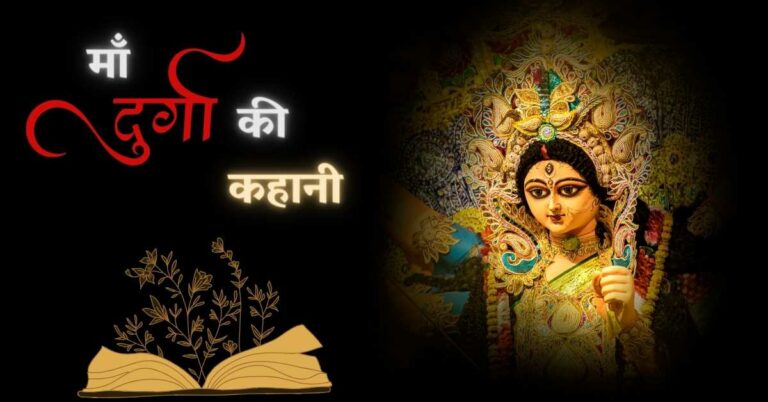
महर्षि व्यास द्वारा रचित अनेक पुराणों में से एक पुराण है श्रीमद् देवीभागवत पुराण, जो माँ दुर्गा की उत्पत्ति और उसके कर्तव्यों की रोचक गाथा
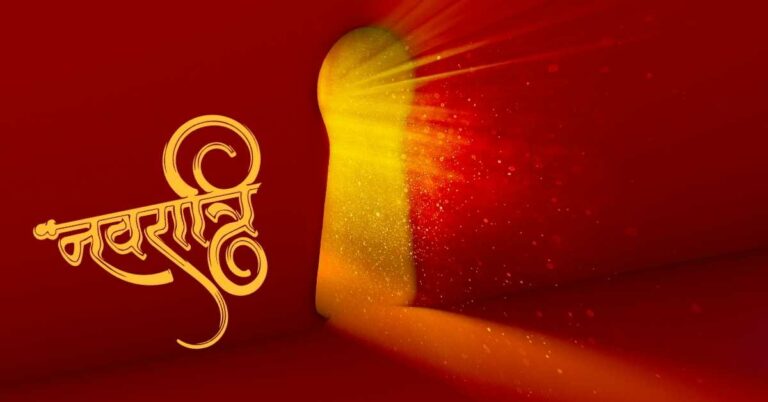
प्राचीन पौराणिक कथा है कि राक्षसों के असर से देवता जब काफी त्रस्त हो गए तो उन्होंने अपनी रक्षा के लिए शक्ति की आराधना करने
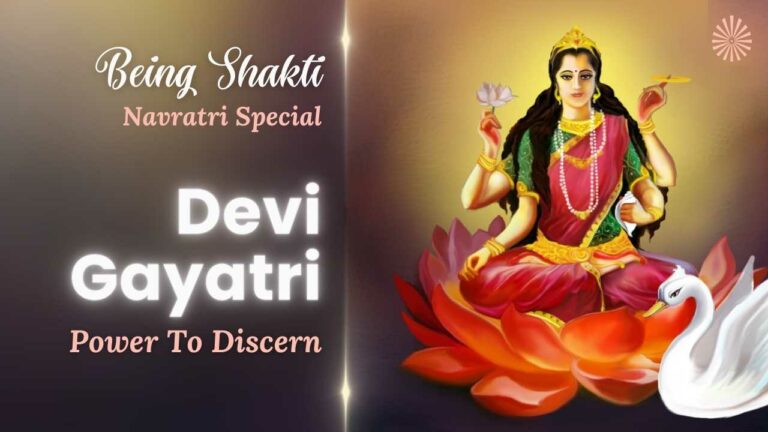
Our fifth soul power is; “Power To Discern”, and it is important to understand that each of these soul powers is crucial; the absence of any can lead to a loss of soul vibrations and divinity. The first four powers naturally combine, followed by the emergence of the next four, ultimately leading to a harmonious soul with increasingly positive vibrations.
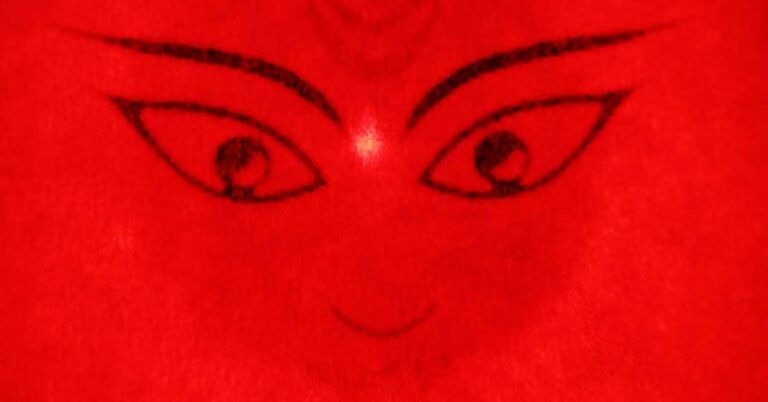
दशहरे से पहले लगातार नौ दिनों तक (नवरात्रि में) भारतवासी शक्तियों की पूजा करते हैं। इन शक्तियों के 108 नामों का गायन है जिनमें से
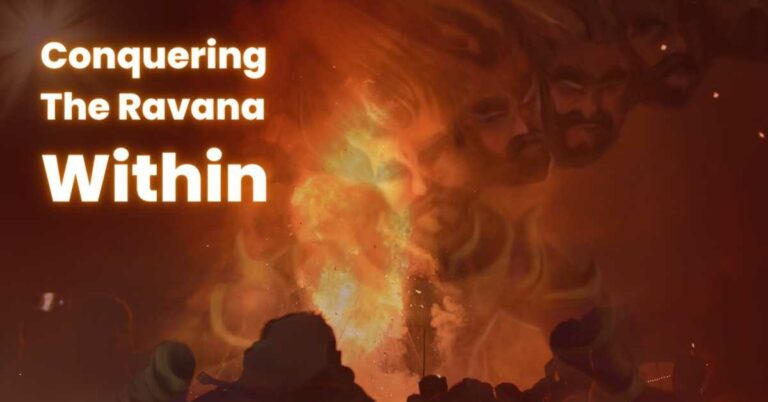
“Ravana’s defeat goes deeper than firecrackers. Dive into the spiritual significance of Dussehra and learn how to awaken your inner self. #SpiritualAwakening #DussehraLessons”
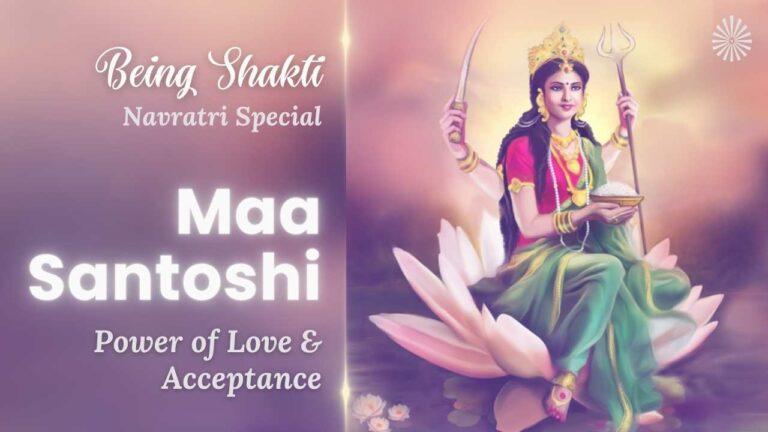
After engaging our three primary powers, a fourth power naturally emerges: the “Power to Accept.” It surfaces as tolerance becomes second nature. All soul power serves as our nourishment, akin to a mother nurturing us. Thus, it’s essential not to claim a lack of power to adapt or vice versa. Saying we lack power implies depleting it at the source.
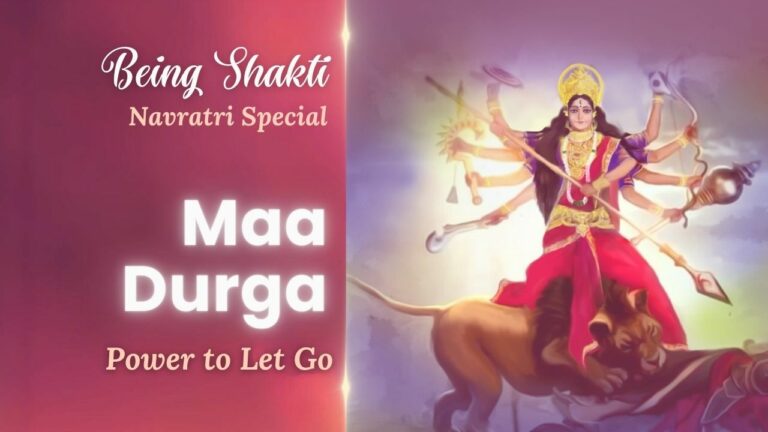
"Power to Let Go," a force that gracefully emerges through the "Power to
Detach." This extraordinary power holds the key to illuminating our soul. To sustain a soul filled with joy and
strength, we must liberate ourselves from the weight of the past. This journey involves the indispensable
practices of forgiveness, forgetting, and embracing letting go as a way of life.
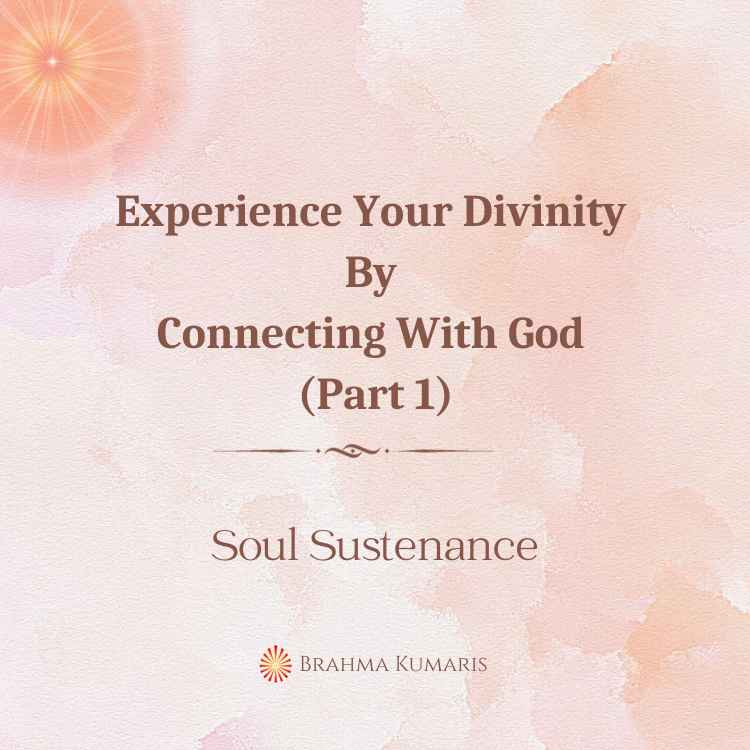
Spiritual Message for Navratri The divine vision, the royal clothes, the weapons, the unique chariot (vaahan), the hand of blessings and the face of dignity,
Start your day with a breeze of positivity and stay motivated with these daily affirmations
After Clicking on Join, You will be redirected to Whatsapp Community to receive daily message. Your identitiy will be secured and no group member will know about another group member who have joined.